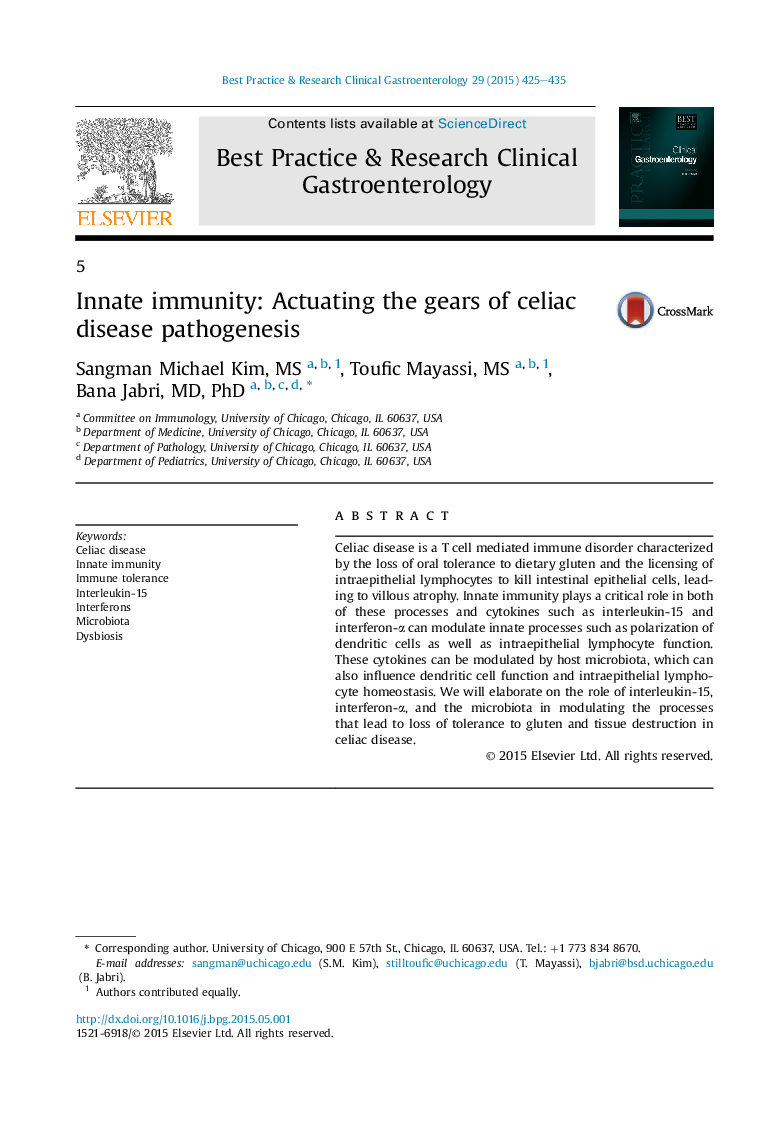| Article ID | Journal | Published Year | Pages | File Type |
|---|---|---|---|---|
| 3254235 | Best Practice & Research Clinical Gastroenterology | 2015 | 11 Pages |
Celiac disease is a T cell mediated immune disorder characterized by the loss of oral tolerance to dietary gluten and the licensing of intraepithelial lymphocytes to kill intestinal epithelial cells, leading to villous atrophy. Innate immunity plays a critical role in both of these processes and cytokines such as interleukin-15 and interferon-α can modulate innate processes such as polarization of dendritic cells as well as intraepithelial lymphocyte function. These cytokines can be modulated by host microbiota, which can also influence dendritic cell function and intraepithelial lymphocyte homeostasis. We will elaborate on the role of interleukin-15, interferon-α, and the microbiota in modulating the processes that lead to loss of tolerance to gluten and tissue destruction in celiac disease.
